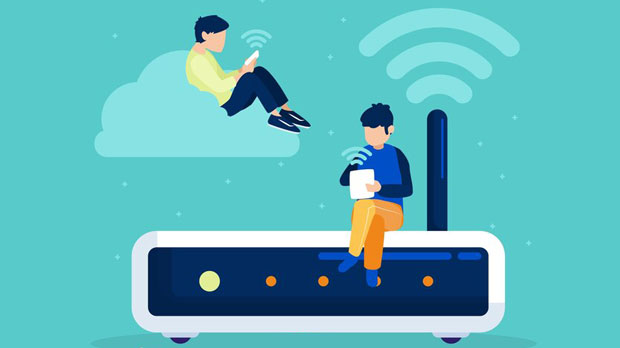When considering online privacy and security needs, selecting the right service package is crucial. For many users, the decision between a personal or business package depends on the specific features and pricing structure. PYPROXY offers various options that cater to different user needs. But are their packages more suitable for individual consumers or businesses? In this article, we will explore the core elements of the pricing and packages, focusing on which types of users—individuals or businesses—can benefit the most from these offerings. Let’s break down these packages in terms of features, costs, and suitability to help you make an informed choice. Understanding the Core Differences: Individual vs. Business NeedsWhen choosing between individual or business packages for proxy services, it’s important to first understand the core differences in needs. Individual users typically look for personal privacy, secure browsing, and access to restricted content. Meanwhile, businesses generally need more robust features, including secure data exchange, multiple user support, high-speed performance, and scalability to handle larger volumes of traffic.Individual users usually focus on affordability, ease of use, and the ability to secure their online presence. On the other hand, businesses require solutions that support high-performance requirements, such as managing multiple users or maintaining stable connections for global operations.Features Tailored for Personal UseFor individuals, proxy services can enhance online privacy, provide access to region-blocked content, and offer a safe browsing experience. The features offered in personal packages often focus on ease of access, user-friendly interfaces, and a limited number of simultaneous connections. These packages usually provide single-user licenses with moderate data usage, catering to people who are primarily concerned about protecting their personal data when browsing or streaming.Cost Considerations for Individual PackagesPricing for individual plans is typically more affordable, designed to attract consumers who need basic functionalities without the need for extensive technical support or advanced tools. These packages are often priced on a monthly or yearly basis, with tiered options offering different data allowances, connection speeds, and access locations. The goal of these pricing models is to cater to individuals who need value for money without compromising on essential privacy and security features.While some individuals may require more advanced services, the majority of personal users find that mid-tier plans offer a satisfactory balance of price and features. At this price point, customers can expect to get access to multiple locations, high-encryption standards, and basic performance features to ensure secure browsing. However, they may not have access to more specialized tools, like dedicated IPs or enhanced data privacy features.Features Tailored for Business UseBusiness packages, on the other hand, are designed with a greater emphasis on scalability, security, and performance. These solutions often support multiple users, allowing teams to access secure and reliable proxies for various business purposes, such as data scraping, market research, or managing global customer interactions. Moreover, they may offer dedicated IPs, higher bandwidth limits, and priority customer support, ensuring that business operations run smoothly.A significant factor in business packages is the ability to manage multiple accounts under a single plan. Businesses require multiple simultaneous connections for their employees to use proxy services for diverse purposes, from secure communications to accessing geographically restricted content. The more robust infrastructure ensures that businesses can handle larger volumes of traffic without interruption or degradation in performance.Cost Considerations for Business PackagesFor businesses, the cost structure tends to be more complex. Typically, business packages are priced based on usage metrics, including the number of users, data consumption, and geographical coverage. While the initial cost of a business plan may be higher compared to personal plans, businesses are often able to justify the expense due to the increased productivity, enhanced data protection, and broader service scope these packages offer.In addition, many business plans offer customizable options, allowing companies to choose the number of dedicated IPs, global server locations, and service level agreements (SLAs) that fit their specific needs. For businesses with higher security and performance demands, these plans are often tailored with premium features that ensure faster speeds, more reliable connections, and advanced data protection mechanisms.Price vs. Value for Both Personal and Business UsersWhen evaluating the price against the value offered by these proxy packages, the focus should be on the specific needs of the user. For individual users, lower-tier packages often provide adequate value for a relatively low price. These packages are designed for users who are primarily concerned with privacy, security, and accessibility without the need for large-scale infrastructure or extensive support services.On the other hand, businesses need to evaluate the return on investment for the more expensive packages. Although the cost is higher, the value of secure, reliable, and scalable proxy services is crucial for protecting sensitive data and ensuring smooth business operations. The advanced features available in business packages, such as dedicated IPs, advanced encryption, and multi-user support, make them essential for enterprises that require high performance and a more tailored approach to their security needs.Which Option Is Best for You?Ultimately, the decision between personal or business packages comes down to the specific requirements and goals of the user. Individuals seeking a simple, cost-effective solution to protect their online privacy will find that personal packages offer a good balance of price and functionality. These packages are designed for low to moderate use, making them ideal for individuals who simply want to browse securely or access geo-blocked content.Businesses, however, require more sophisticated solutions to accommodate their larger, more complex operations. The higher cost of business packages is justified by the enhanced security, scalability, and performance they offer. Businesses dealing with large amounts of data, multiple users, or global operations will find that the value provided by business packages far outweighs the higher costs involved.Conclusion: Which Plan Fits Your Needs?In conclusion, whether PYPROXY's packages and pricing are more suitable for individuals or businesses largely depends on the user’s specific needs. Personal users should opt for affordable, basic packages that cater to individual privacy and browsing requirements. In contrast, businesses will benefit from more comprehensive and scalable solutions that offer enhanced security, performance, and multi-user support.For individuals looking for value in securing their online presence, low-cost packages with basic functionality will suffice. Meanwhile, businesses with high-volume, security-driven requirements should invest in higher-tier packages for a premium experience tailored to their operational needs. Therefore, while both types of users can benefit from PYPROXY's offerings, businesses are better suited for the more robust, scalable packages, while individuals can find satisfaction in more affordable, streamlined options.
Apr 11, 2025



























































